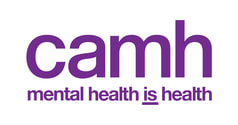Worldwide, postsecondary campuses are grappling with the increased demand for student mental health resources and support. The COVID-19 pandemic has underscored the urgency and complexity of student mental health on campuses worldwide. Despite this, few international research partnerships exist within student mental health, contributing to a critical research gap in the student mental health needs of postsecondary students.
Our global student mental health research network will identify, develop, and apply shared, research-driven best practices in student mental health and will support the next generation of student mental health researchers. This, in turn, will transform the way we understand and support student mental health, leading to high-impact and long-term global solutions and outcomes.
Our global student mental health research network will identify, develop, and apply shared, research-driven best practices in student mental health and will support the next generation of student mental health researchers. This, in turn, will transform the way we understand and support student mental health, leading to high-impact and long-term global solutions and outcomes.
Visit our website to learn more about project activities and network partners.






